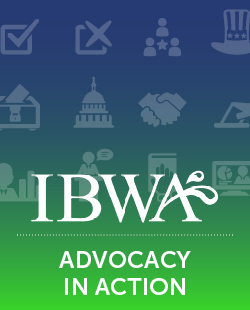Issue Statement – Recycled Content
Issue Statement – Recycled Content
IBWA STATE AFFAIRS
ISSUE STATEMENT
1/20/00
ISSUE: RECYCLED CONTENT
POSITION: IBWA is opposed to mandatory requirements for recycled content for food packaging.
BACKGROUND: When states do not meet recycling goals for beverage containers, some react by calling for new or expanded bottle deposit programs to address the supply of discarded beverage containers. A second and increasingly popular reaction is a call for a requirement that consumer packaging contain a percentage of recycled content. This, in theory, would increase the demand for recycled resin obtained from discarded beverage containers. Some non-food packaging such as detergent and motor oil containers voluntarily include as much as 100 percent recycled content. Recycled content, however, is problematic for food packaging.
-While FDA does not formally approve of recycled content in food packaging, they don’t object either. For voluntary use of recycled content in food packaging, the FDA can issue a “Letter of Non-Objection.” A non-objection letter can be somewhat precarious, though, since it does not absolve a manufacturer from liability should the recycled content be a source of product contamination.
-Two states, California and Oregon, have recycled content provisions in their recycling laws. These laws, known as rigid plastic packaging container (RPPC) laws, offer containers the compliance option of lightweighting, meeting a specific recycling rate, be reusable or refillable or contain recycled content. Oregon’s law includes food packaging in its program. While California originally included food packaging in its program, the legislature later exempted food and cosmetics containers.
-Last year, legislation introduced in California (SB 1110) seeks to remove the food and cosmetic exemption and increase the statutory recycling rates in the RPPC law. Wisconsin has mulled a 25 percent recycled content requirement since 1997, but it is unclear if the legislature will consider a proposal in 2000. In 1998, the beverage industry beat back a serious proposal in Rhode Island that would have required 100 percent recycled content for HDPE containers.
-Environmentalists are waging a national advertising campaign admonishing The Coca Cola Company for not using recycled content in their containers. Further dramatic declines in PET recycling rates could place other beverages under similar scrutiny.
TALKING POINTS
-Until there is a technological guarantee that recycled content cannot possibly contaminate a food product, any government mandate for recycled content is incompatible with government requirements for food safety.
-There are countless opportunities to recycle plastic into non-food applications.
-A mandate for recycled content in bottled water containers is not an efficient way to achieve a significant reduction in litter or solid waste, since, in general, only about 2 percent of roadside litter consists of non-carbonated drink containers.
-More than any other segment of the food industry, the bottled water industry already contributes significantly to solid waste reduction through the use of refillable containers for home and office cooler service.


